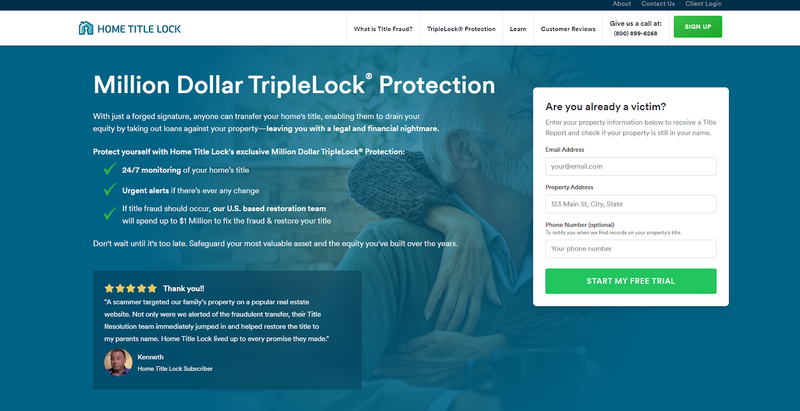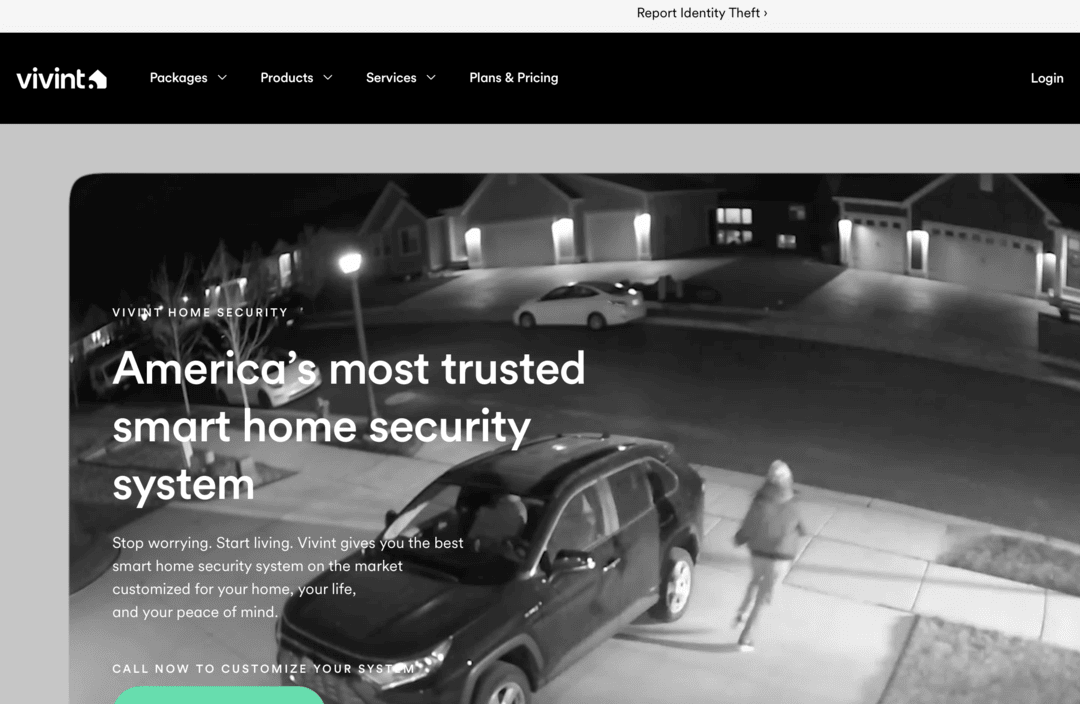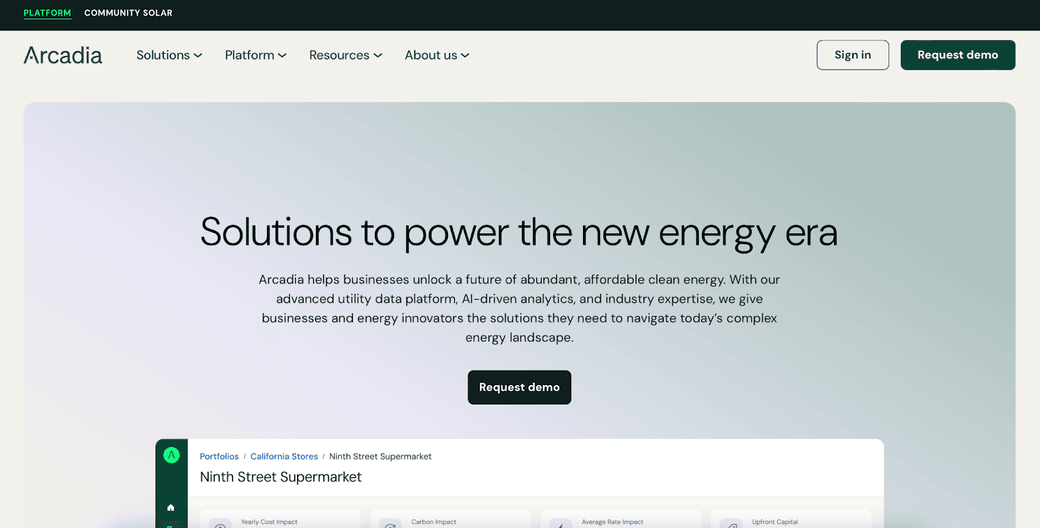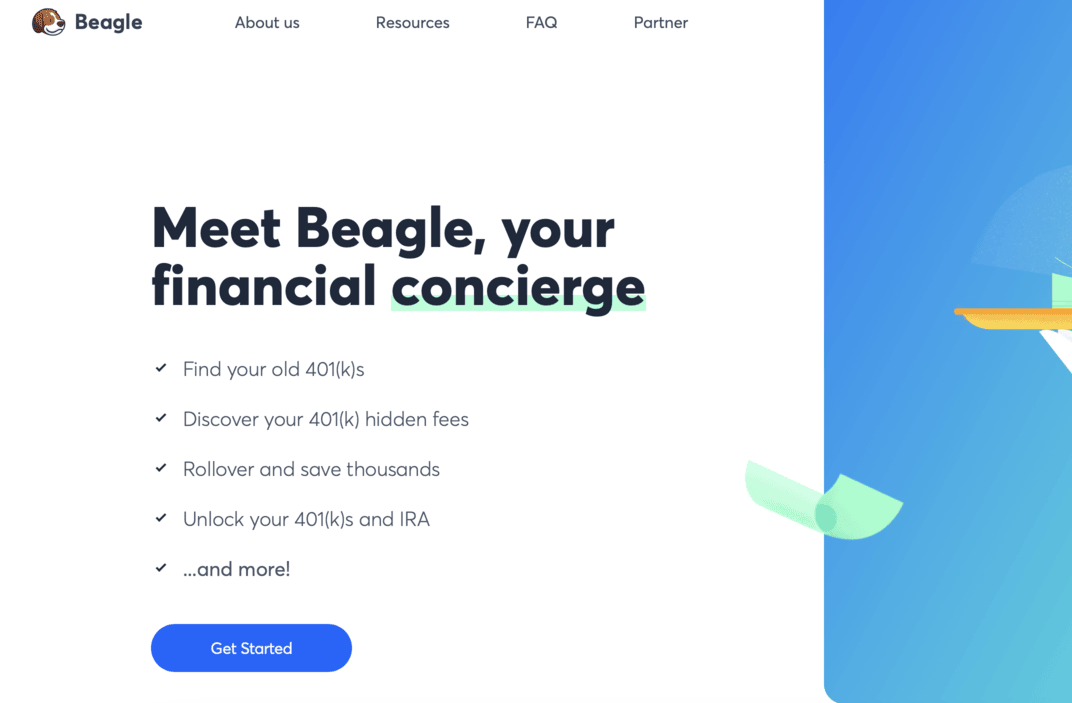Is Home Title Lock a Scam?
Laura Martisiute
Reading time: 7 minutes

Table of Contents
If you’re thinking of using Home Title Lock, you need to know: Is Home Title Lock a scam?
Below, we explain whether Home Title Lock is a scam and discuss some steps you can take to improve your safety when using this service.
What Is Home Title Lock?
Home Title Lock is a service that monitors your home’s title for signs of fraud or unauthorized changes.

If Home Title Lock notices any changes to your home title, it sends you an alert.
In the event that you fall victim to title fraud, Home Title Lock says that its US-based restoration team will spend up to $1 million to help you restore your title.
Is Home Title Lock a Scam?
No, Home Title Lock is not a scam. It’s a legitimate service that monitors for any actions taken against your title.
However, whether subscribing to this service is worth it is up for debate.
Reviews from third-party publications and review sites are lukewarm.
Comparitech gives Home Title Lock a rating of 1.5 out of 5.0 stars. Its verdict is that there are better alternatives out there: “I don’t believe Home Title Lock offers enough features for what it charges.”
User reviews of Home Title Lock are mixed. For example, the service receives 3.8 out of 5.0 stars (based on 26 reviews) on Trustpilot.
On online forums, people don’t seem to see much point in services like Home Title Lock.
One person said: “In absolutely no way does a company like title lock actually protect or prevent fraudulent stuff with a home. It just hopefully notifies you of it so you can do something about it.”

In an interview with FOX5 Atlanta, FOX5 real estate expert John Adams noted the following about title lock services like those provided by Home Title Lock:
- Title lock subscription doesn’t prevent fraud; it only notifies you after the fact.
- No legal protection or recovery support is offered.
- You still legally own your home if fraud occurs because fraudulent deeds are not valid.
- Title insurance (a different product) already protects against legitimate ownership disputes.
- Most counties let you monitor title records for free online.
- Actual title theft is rare and can usually be resolved in court.
In a 2024 consumer alert, the Federal Trade Commission warned consumers that home title lock insurance services cannot prevent home title theft; they can only monitor for it and alert you after the fact.

Similarly, in an even earlier (2022) consumer alert, Maryland Attorney General Brian E. Frosh said: “You don’t need to purchase title lock insurance. It neither locks nor insures your home title against fraud.”
Home Title Lock notes that it can’t prevent home title fraud in its terms of service: “UNLESS OTHERWISE SPECIFIED IN WRITING HOME TITLE LOCK DOES NOT WARRANT THAT ANY PRODUCTS OR SERVICES CAN OR WILL PREVENT A FRAUDULENT TITLE EVENT.”

Home Title Lock is not Better Business Bureau (BBB) accredited. Read our review of whether the BBB is a scam.
Misleading advertising
Consumer advocates have accused Home Title Lock of misleading and alarmist ads.
These ads frequently claim that home title theft is a widespread and rapidly growing threat, sometimes attributing warnings to the FBI that the agency has never issued. An FBI public affairs officer said, “We cannot find any source for that quote.”
The National Association of Consumer Advocates criticized Home Title Lock for using “scare tactics.”
An ABC News investigation found that two individuals featured as title theft victims in Home Title Lock’s ads lost their homes through unrelated legal means, not title fraud. After being contacted by reporters, the company removed those stories from its website.
In 2023, Texas Attorney General Paxton launched an investigation into Home Title Lock for potential violations of the Texas Deceptive Trade Practices Act.
City attorneys in San Francisco and San Diego subpoenaed Home Title Lock, accusing it of “deceptive advertising.”
A Home Title Lock spokesperson said that the ads reflect what he and his colleagues “see and hear every day.”
Security
We couldn’t find much information about Home Title Lock’s security measures.
In its privacy policy, Home Title Lock says that “any information you send to us electronically, while using the Home Title Lock Services or otherwise interacting with us, may not be secure when it is transmitted to us.”

Privacy
Home Title Lock explains the kind of data it collects, why, and with whom it shares it in its privacy policy.
It collects the following personal information:
- Directly from you: Email, phone number, address, company information, login credentials, and other voluntarily submitted data.
- Automatically (traffic data): IP address, device/browser type, pages visited, time on site, referral sources, etc.
Home Title Lock uses this information to provide services, improve offerings, communicate with you, prevent fraud, fulfill legal obligations, and advertise.
Consent is required for marketing communication (via email, SMS, etc.).
Home Title Lock doesn’t use automated decision-making.
It says it doesn’t sell your personal information to third parties.
The service may share your data with partners for operational, analytical, and advertising purposes. It may also disclose your data for legal compliance, safety, or in the event of a business transfer.

Home Title Lock retains your personal information “for as long as necessary” to provide you with its services and, in some cases, “for longer, if doing so is necessary to comply with our legal obligations, or as otherwise permitted by applicable law.” The company does not share specific data retention timeframes.
Afterward, Home Title Lock retains some of your data in a de-identified or aggregated form.
Depending on where you live, you may be able to exercise privacy rights, like the right to access or delete your personal information.
So, Should You Use Home Title Lock?
Probably not.
Though Home Title Lock is a legitimate business, as Clark.com says, you can get similar services for free:
Specifically, Clark.com says:
“Many counties now offer a notification system where — as the property owner of record — you’ll be notified when someone attempts an action against your title, such as taking out a loan. So start with your county. If they have the notification service, sign up for that free service, and you won’t need this.”
How to Use Home Title Lock Safely and Privately
- Try free alternatives first. See if your county has a notification system you can sign up for to be notified if someone attempts to take action against your title, check your credit report for free, and monitor your bills (if you stop getting them, that could indicate identity theft).
- Create a strong password. And don’t reuse it elsewhere online.
- Limit the amount of personal information you share with Home Title Lock. Only provide essential details (email, address, etc.)
- Use a masked email address. This can reduce spam and data exposure while still ensuring you get alerts and notifications.
- Read Home Title Lock’s terms of service and privacy policy. That way, you can understand exactly what you’ll get when you sign up for the service and also know how your personal data is collected, stored, shared, and retained.
- Opt out of marketing communications. Decline marketing emails and SMS texts by unchecking any boxes during signup. Use the unsubscribe links in emails to opt out of future marketing communications.
- Exercise your privacy rights. Depending on where you live, you may be able to request Home Title Lock to send you a copy of your data, correct it, delete it, etc.
- Act quickly. If you think you’ve been a victim of identity theft, go to IdentityTheft.gov to request a free, personalized recovery plan. Also, contact your local law enforcement and recorder’s office, and file a complaint with your state Attorney General’s office. Additionally, reach out to your title company.
Our privacy advisors:
- Continuously find and remove your sensitive data online
- Stop companies from selling your data – all year long
- Have removed 35M+ records
of personal data from the web
Save 10% on any individual and
family privacy plan
with code: BLOG10
news?
Don’t have the time?
DeleteMe is our premium privacy service that removes you from more than 750 data brokers like Whitepages, Spokeo, BeenVerified, plus many more.
Save 10% on DeleteMe when you use the code BLOG10.

















